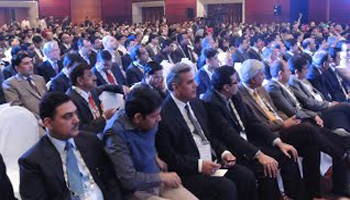By I C Naik
The TOI report of Jan 4, 2016 titled “Housing society fined for cutting off water supply to its member” made me have a relook at the write up “Is member of CHS its Consumer or its Joint owner? posted in Cooperative Coffee Shop on December 21, 2015 by Mr. I C Naik. I am tempted to quote what the Supreme Court observed in one of its orders (Lucknow Development Authority AIR 787, 1994 SCC (1) 243 ].“The Act thus aims to protect the economic interest of a consumer as understood in commercial sense as a purchaser of goods and in the larger sense of user of services. The common characteristics of goods and services are that they are supplied at a price to cover the costs and generate profit or income for the seller of goods or provider of services.”
The TOI reported court order is a bit confusing:
(i) The Thane district consumer redressal forum, penalized the elected representatives of a Mira Road Silver Park housing society”. and
(ii) The three-member consumer panel reportedly ordered the housing society to pay Rs 5,000 towards compensation and Rs 2,000 as legal fees to member Altaf Pirani who owns six flats in the society.”
Whether the housing society is penalized or its Committee members is not clear?
Two significant findings of the Court as reported:
(i) Severing drinking water supply and depriving a family of basic amenities for non-payment of the annual maintenance charges was against the Fundamental Rights and forcing the family to go without water for 16 days amounts to service deficiency.
(ii) The general body took such an extreme decision as it was incorrectly informed that there was a direction of the Mira-Bhayander civic body, to sever the water connection.
The third piece of relevant information in the TOI report is “The legal team representing the society argued that Patel, who was a lawyer, had slapped several “trivial” cases against society members. Hence the society general body had decided to disconnect water only on the directions of the Mira-Bhayander civic body.” So what exactly for the action was taken against the member?
I quote one more paragraph from the post referred to at the outset “In a recent order (Jan 2015) Mumbai based Customs Excise and Service Tax Appellate Tribunal ruled in case of Tahnee Heights and Mittal Tower cooperative societies that member’s contribution are not liable to service tax as charges that are collected are in the nature of reimbursement by members to their collective body exclusively formed of the members only. It is an admission of fact by a Tax Tribunal that there was no case of the society rendering any service at a price.”
If Altaf Pirani tries to look carefully the modus operandi of sharing society charges amongst members as explained in the aforesaid post, he would realize that the largest chunk of the Compensation and Legal fees that he will receive will be charged back to him in maintenance bills of 6 flats, as both these are required to be apportioned to each flat.
Does this analysis not make us to think, who was guilty of cutting water supply? As the general body meeting authorised the Committee it can arguably defend its members against the Registrar holding them liable to bear Rs 7000 as provided under section 73(1AB) of the MCS Act 1960 . It may be recalled that reportedly the Consumer Court did pass strictures against the committee but ultimately clamped burden of Rs 7000 on the housing society. There may be some members not being in favour of general body resolution but they also have to bear as the resolutions are binding on all including the complainant. They may argue that it was the duty of the Committee to verify the accuracy of the so called directions by the Civic Authorities based on which the disgruntled member was slapped a 100% Water cut.
Besides the concerns for deficiency in service as discussed above other concern which weighed on the minds of the learned judges of the Consumer Court was“depriving a family of basic amenities which as per the Court was against the Fundamental Rights” In this context it is pertinent to note that at Para 26 of the order of the Supreme Court of India [Zoroastrian Co-Operative Housing Society Limited Rd-Sc 253 (15 April 2005)] it is observed by the Bench that “The fundamental rights in Part III of the Constitution are normally enforced against State action or action by other authorities who may come within the purview of Article 12 of the Constitution.(reproduced below)” “12. Definition.—In this Part, unless the context otherwise requires, “the State” includes the Government and Parliament of India and the Government and the Legislature of each of the States and all local or other authorities within the territory of India or under the control of the Government of India” The Supreme Court has recently held in Thalappalam Ser.Coop.Bank Ltd.& … vs State Of Kerala & Ors. on 7 October, 2013 : CIVIL APPEAL NO. 9017 OF 2013 that “cooperative societies are not public authorities in the absence of materials to show that they are owned, controlled or substantially financed by the appropriate Government. The Cooperative societies are not under obligation of assuring fundamental rights. Its members have contractual rights as per Bye-Laws and whether cutting of the water supply was a breach of the contract attracting compensation and if so who should suffer that : the members including the complainant? What is the provision under Bye-Laws?
So does this outcome not cause any discomfort? Has anyone got pacifying suggestions. Read more on https://www.indiancooperative.com/cooperative-coffee-shop/is-member-of-chs-its-consumer-or-its-joint-owner/
